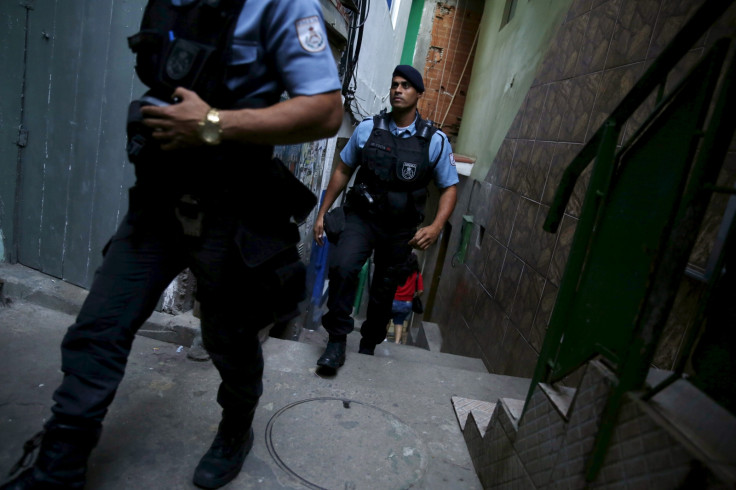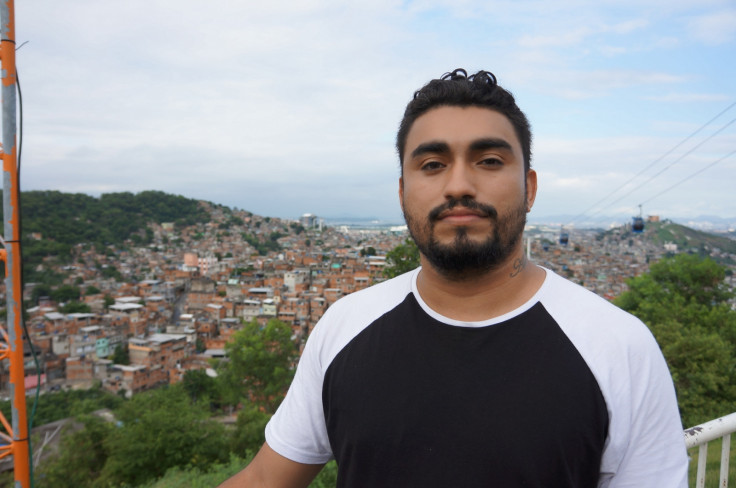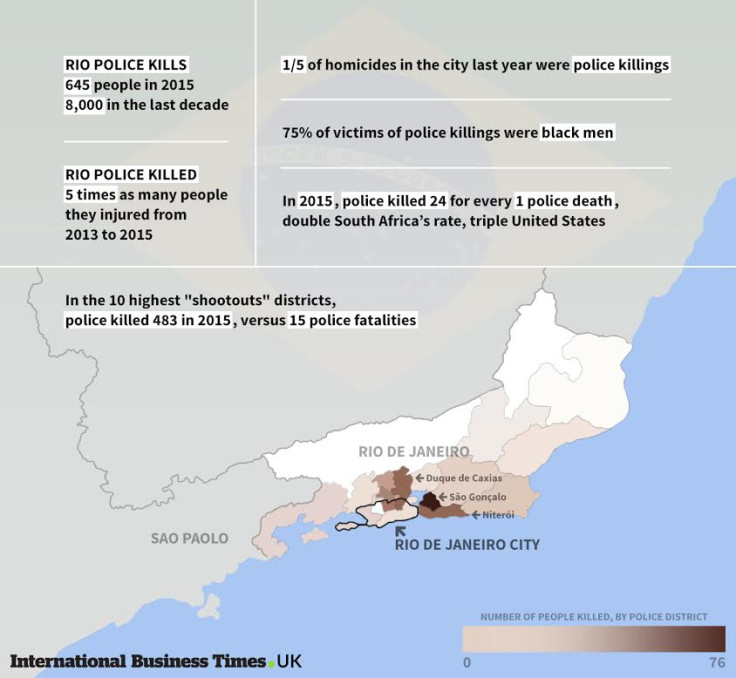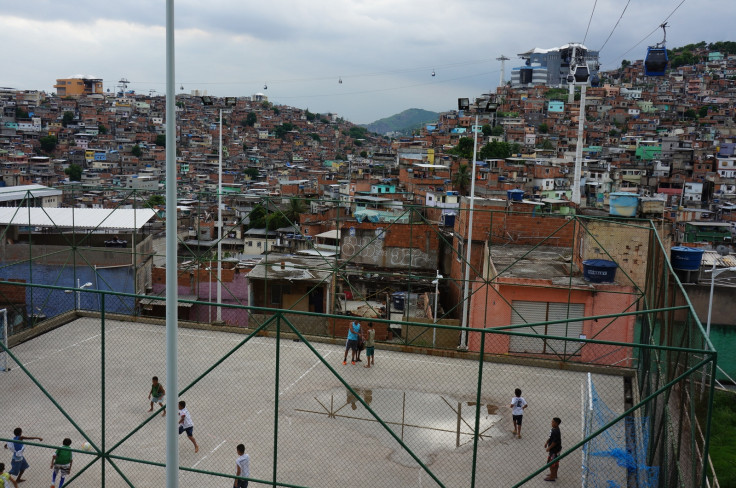How Brazil's favelas are using mobile phones to fight back against police brutality
Rio has seen thousands of police killings since it was awarded the Olympic Games.
It was a regular evening in April 2015 in the Complexo do Alemão, one of the largest favelas in Rio de Janeiro, Brazil. Eduardo, 10, was sitting at the front door of his house, playing with his mobile phone and eagerly waiting for his sister to get home so they could play as their mother prepared dinner. It was their daily routine.
But then, normal abruptly ended. After a loud bang and a painful cry for help, Eduardo's mother, Terezinha Maria de Jesus, rushed out of the house and saw what no mother should ever see: her son's lifeless body lying on the floor, surrounded by military police.
One of them, Terezinha said, described Eduardo as the son of a crook, and warned that he could kill her as easily as he had just killed her child.
Within minutes, a crowd had gathered. Some prevented the officers from hurting Terezinha, others tried to stop them from placing a gun next to the boy in an attempt to alter the scene and conceal the fact that they had shot an unarmed child. Others instinctively reached for their smartphones. They knew the best response was to record everything.
"We had to climb over some roofs to get a good angle for filming," says Raull Santiago, a 27-year-old favela resident. "People needed to know about this."
The videos turned out to be key evidence in one of the few investigations ever conducted into what appears to be a deliberate and arbitrary killing committed by the police in a favela.

In November 2015, the Homicide Division, a specialised police investigation unit, acknowledged that the bullet that killed Eduardo was shot by a military police officer, but claimed it was in self-defence. The unsustainability of this allegation led the public prosecutor to formally accuse one police officer of homicide. The case against the police officer is still in progress.
"It took a mobile phone for people to be able to show what they had been saying for a long time," says Raull. "People used to just talk, now they show you what they see."
Raull is part of a generation of young Brazilians who are relying on technology to report on the country's scandalous homicide rate and the many human rights violations committed by the security forces.

Young people are using social media networks to tell each other when shootings are heard or when a particular area of the favela is "too hot" to pass through, so people can opt for less risky routes. They record police abuses that can be used in official investigations – evidence that only favela residents can gather. In their hands, a smartphone can make the difference between life and death, justice and impunity.
And the need has never been greater. As one of the world's deadliest cities, Rio has seen thousands of police killings since it was awarded the Olympic Games in 2009 – with an increase since 2014, as documented by Amnesty International and other civil society organisations.
In the city of Rio de Janeiro, one in every five homicides in 2015 was committed by on-duty police. According to the official Institute of Public Security (Instituto de Segurança Pública), 40 people in the city were killed by on-duty police officers in May 2016 alone – an increase of 135% from the same period in 2015.

Meanwhile, in the state of Rio de Janeiro, homicides resulting from police operations in 2014 rose a shocking 40% in comparison with the previous year. They rose a further 11% in 2015, with 645 people killed by police in the state.
People living in Brazil's favelas are usually caught up between violent criminals and police officers who use unnecessary and excessive force with almost absolute impunity.
A revolution on a screen
In the northern region of the city, the hills of the Complexo do Alemão are accessed by a breathtaking gondola ride. From up high, the group of colourful favelas look peaceful. Step onto the ground, and it is a very different story.
Violent deaths are so routine in these narrow streets that traditional media outlets often do not report them.
The authorities have focused on police operations here when the solution lies in giving opportunities to young people.
Raull, born and bred in Alemão, grew up amid the violence, seeing more death by the time he was a teenager than most people witness in a lifetime. By the age of 20, he was fed up of seeing his community crumble, so he decided to do something about it. He gathered eight friends, equipped them with mobile phones and a computer, and set up Papo Reto ("Straight Talk"), an independent media outlet "by the community, for the community".
"We wanted to show what is happening here, the bad and all the good," Raull says. "We wanted to show what we see, not what the big newspapers see. This is how we fight for justice."
The residents soon began sending through videos and pictures of their daily lives – depicting gun fire notices and police operations, as well as the various problems with the favelas' infrastructure. Raull and his colleagues would check the information before sharing it via social media platforms such as Facebook, Twitter and Whatsapp.

As we walk around Alemão, Raull seems excited. Favela residents recognise him, greeting him and telling him stories. His smartphone lights up constantly, with news tips and updates from the favela's streets.
This virtual network helps keep the favelas' residents informed. It is an invisible blanket that aims to protect them against the violence that has decimated communities across the country and condemned the hopes of generations.
And now, with the Olympics fast approaching, the residents of Alemão are preparing for the worst.
"I'm worried the security forces will intensify their operations in favelas," Raull says. "The authorities have focused on police operations here when the solution lies in giving opportunities to young people, in jobs, education, real security. That should be the way forward."
Josefina Salomon is a news writer at Amnesty International
© Copyright IBTimes 2024. All rights reserved.





